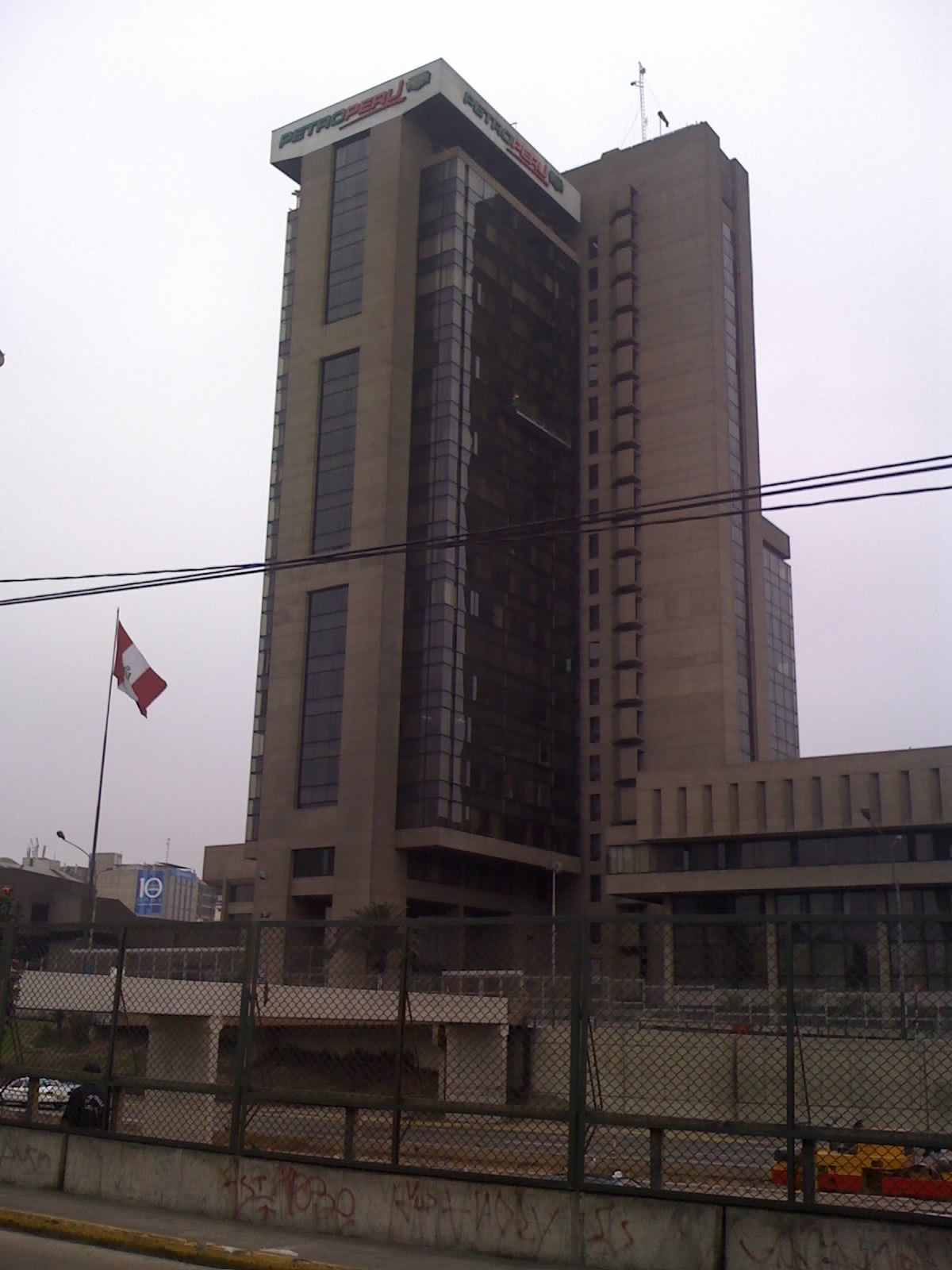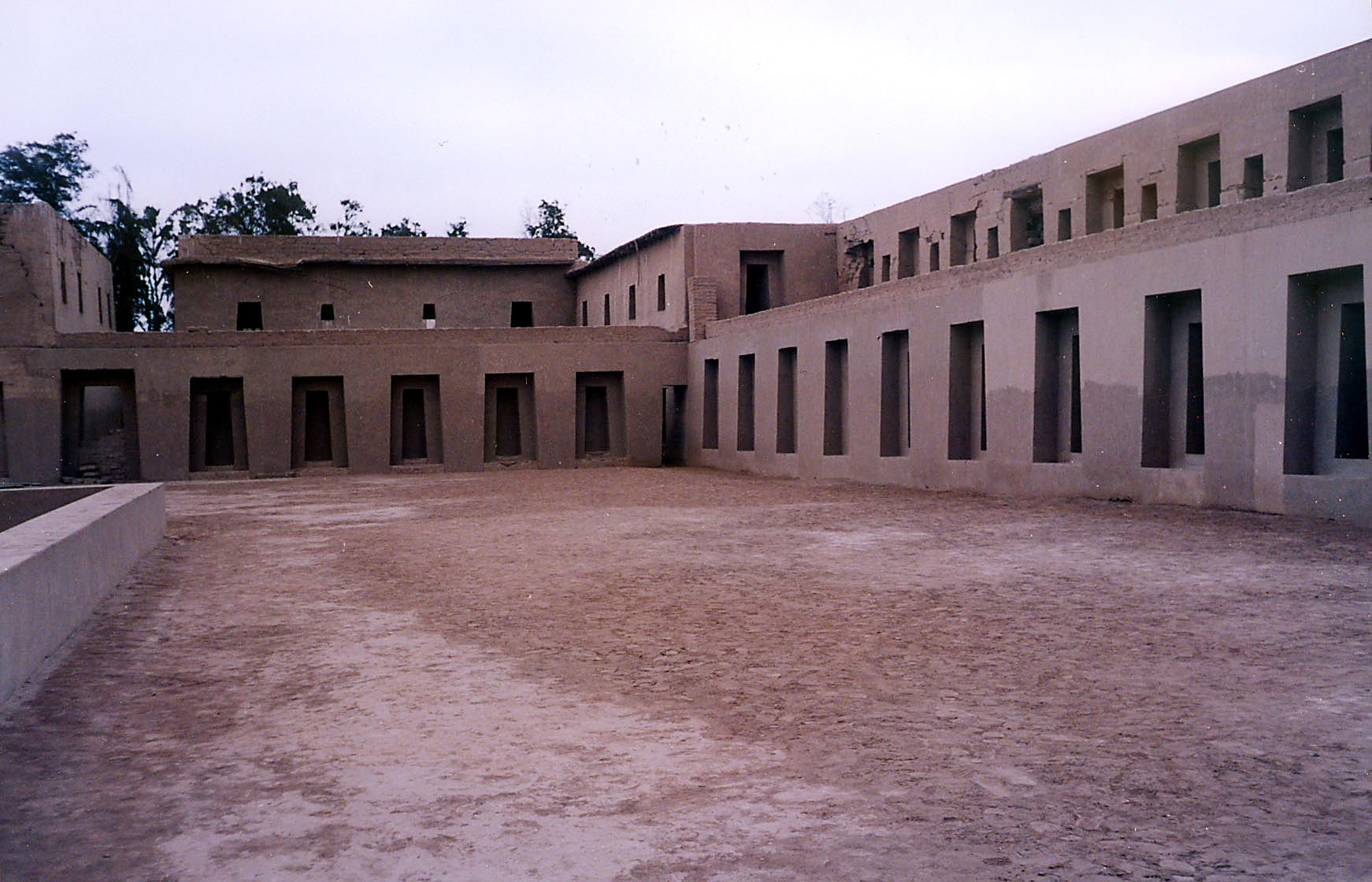|
Carlos Gamarra Ugaz
Carlos Gamarra Ugaz is a Peruvian politician and attorney. He served as the Minister of Justice of Peru from 2006 to 2008. Prior to his ministership, he was a prominent defense attorney in Lima. He later retired after his justice ministership. Biography He was president of the Commission for the Formalization of Informal Property (COFOPRI); head of the National Superintendence of Public Registries (SUNARP); and president of the Council of Notaries, between 2001 and 2005. He has also been head of the National Institute of Concessions and Mining Cadastre (INACC); member of the Mining Registry Advisory Commission, Institutional Head of the Public Mining Registry; Director of Petroperú, Petróleos del Perú, Director of the Banco Minero del Perú; Director and Vice President of the Board of Directors of the Geological Mining Metallurgical Institute (INGEMMET); Director of the Board of Directors of the Scientific, Technological and Mining Institute; member of the Advisory Council of ... [...More Info...] [...Related Items...] OR: [Wikipedia] [Google] [Baidu] |
Ministry Of Justice And Human Rights (Peru)
The Ministry of Justice and Human Rights (, MINJUSDH) of Peru is the List of ministries of Peru, government ministry charged with advising the President of Peru in judicial matters. The ministry is responsible of the National Penitentiary Institute (Peru), national prison system as well as the state's relationship with the Roman Catholicism in Peru, Roman Catholic Church in Peru. The minister of justice is Juan Alcántara Medrano since May 2025. History In 2011, a Vice Ministry for Human Rights was created, resulting in the ministry adopting its current name. Organisation *General Secretariat *Vice Ministry of Justice **Directorate-General of Regulatory Development and Regulatory Quality **Directorate-General of Criminological Affairs **Directorate-General of Justice and Religious Freedom **Directorate-General of Transparency, Access to Public Information, and Personal Data Protection *Vice Ministry of Human Rights and Access to Justice **Directorate-General of Public Defense an ... [...More Info...] [...Related Items...] OR: [Wikipedia] [Google] [Baidu] |
Liberty Movement
Liberty Movement () was a classical liberal political party in Peru. It was founded in 1987 by people who opposed decrees such as the nationalization of the banking sector in 1986 under the first presidency of Alan García, including Mario Vargas Llosa. Instead it advocated a free market approach to solving Peru's hyperinflation, which peaked at over 7000%. Notable members * Pedro Cateriano * Enrique Chirinos Soto * Enrique Ghersi * Beatriz Merino * Luis Miró Quesada Garland * Rafael Rey * Mario Vargas Llosa * Miguel Vega Alvear * Ricardo Vega Llona Electoral history Presidential elections Elections to the Congress of the Republic of Peru, Congress of the Republic Elections to the Senate See also * Hernando de Soto * Lost Decade (Peru) * Mario Vargas Llosa * People's Liberty References Bibliography *Tauro del Pino, Alberto: ''Enciclopedia Ilustrada del Perú''. Tercera Edición. Tomo 11. MEN/OJE. Lima, PEISA, 2001. *Mario Vargas Llosa, Vargas Llosa, ... [...More Info...] [...Related Items...] OR: [Wikipedia] [Google] [Baidu] |
Peruvian Politicians
Peruvians (''/peruanas'') are the citizens of Peru. What is now Peru has been inhabited for several millennia by cultures such as the Caral before the Spanish conquest in the 16th century. Peruvian population decreased from an estimated 5–9 million in the 1520s to around 600,000 in 1620 mainly because of infectious diseases carried by the Spanish. Spaniards and Africans arrived in large numbers in 1532 under colonial rule, mixing widely with each other and with Native Peruvians. During the Republic, there has been a gradual immigration of European people (especially from Spain and Italy, and to a lesser extent from Germany, France, Croatia, and the British Isles). Chinese and Japanese arrived in large numbers at the end of the 19th century. With 31.2 million inhabitants according to the 2017 Census. Peru is the fourth most populous country in South America. Its demographic growth rate declined from 2.6% to 1.6% between 1950 and 2000, and its population is expected to reach a ... [...More Info...] [...Related Items...] OR: [Wikipedia] [Google] [Baidu] |
Living People
Purpose: Because living persons may suffer personal harm from inappropriate information, we should watch their articles carefully. By adding an article to this category, it marks them with a notice about sources whenever someone tries to edit them, to remind them of WP:BLP (biographies of living persons) policy that these articles must maintain a neutral point of view, maintain factual accuracy, and be properly sourced. Recent changes to these articles are listed on Special:RecentChangesLinked/Living people. Organization: This category should not be sub-categorized. Entries are generally sorted by family name In many societies, a surname, family name, or last name is the mostly hereditary portion of one's personal name that indicates one's family. It is typically combined with a given name to form the full name of a person, although several give .... Maintenance: Individuals of advanced age (over 90), for whom there has been no new documentation in the last ten ... [...More Info...] [...Related Items...] OR: [Wikipedia] [Google] [Baidu] |
Eduardo Salhuana Cavides
Eduardo is the Spanish and Portuguese form of the male name Edward. Another version is Duarte. It may refer to: Association football * Dudu (footballer, born 1992) (Eduardo Pereira Rodrigues), Brazilian footballer * Eduardo (footballer, born 1993) (Carlos Eduardo Bendini Giusti), Brazilian centre back * Eduardo (footballer, born 12 November 1986) (Eduardo da Conceição Maciel), Brazilian forward * Eduardo (footballer, born 20 November 1986) (Carlos Eduardo Santos Oliveira), Brazilian right back * Eduardo (footballer, born 1979) (Eduardo Adelino da Silva), Brazilian footballer * Eduardo (footballer, born 1995) (Eduardo José da Rosa Milhomem), Brazilian defender * Eduardo (footballer, born 1997) (Eduardo Jacinto de Biasi), Brazilian defensive midfielder * Eduardo (footballer, born 2000) (Eduardo da Silva Albuquerque), Brazilian midfielder * Edu Coimbra (Eduardo Antunes Coimbra) (born 1947), Brazilian attacking midfielder and manager * Edu (footballer, born 1981) (Eduardo Gonçal ... [...More Info...] [...Related Items...] OR: [Wikipedia] [Google] [Baidu] |
Arlos Ferrero
Arlos is a commune in the Haute-Garonne department in southwestern France. Population See also *Communes of the Haute-Garonne department The following is a list of the 586 communes in the French department of Haute-Garonne. The communes cooperate in the following intercommunalities (as of 2025): References Communes of Haute-Garonne {{SaintGaudens-geo-stub ...[...More Info...] [...Related Items...] OR: [Wikipedia] [Google] [Baidu] |
Mario Vargas Llosa
Jorge Mario Pedro Vargas Llosa, 1st Marquess of Vargas Llosa (28 March 1936 – 13 April 2025) was a Peruvian novelist, journalist, essayist and politician. Vargas Llosa was one of the most significant Latin American novelists and essayists and one of the leading writers of his generation. Some critics consider him to have had a more substantial international impact and worldwide audience than any other writer of the Latin American Boom. In 2010, he won the Nobel Prize in Literature for "his cartography of structures of power and his trenchant images of the individual's resistance, revolt, and defeat". Vargas Llosa rose to international fame in the 1960s with novels such as '' The Time of the Hero'' (, 1963/1966), '' The Green House'' (, 1965/1968), and the monumental '' Conversation in The Cathedral'' (, 1969/1975). He wrote prolifically across various literary genres, including literary criticism and journalism. His novels include comedies, murder mysteries, historical no ... [...More Info...] [...Related Items...] OR: [Wikipedia] [Google] [Baidu] |
National Institute For The Defense Of Free Competition And The Protection Of Intellectual Property
National may refer to: Common uses * Nation or country ** Nationality – a ''national'' is a person who is subject to a nation, regardless of whether the person has full rights as a citizen Places in the United States * National, Maryland, census-designated place * National, Nevada, ghost town * National, Utah, ghost town * National, West Virginia, unincorporated community Commerce * National (brand), a brand name of electronic goods from Panasonic * National Benzole (or simply known as National), former petrol station chain in the UK, merged with BP * National Book Store, a bookstore and office supplies chain in the Philippines * National Car Rental, an American rental car company * National Energy Systems, a former name of Eco Marine Power * National Entertainment Commission, a former name of the Media Rating Council * National Motor Vehicle Company, Indianapolis, Indiana, USA 1900–1924 * National Radio Company, Malden, Massachusetts, USA 1914–1991 * National Supermarket ... [...More Info...] [...Related Items...] OR: [Wikipedia] [Google] [Baidu] |
Alejandro Toledo
Alejandro Celestino Toledo Manrique (; born 28 March 1946) is a Peruvian former politician who served as President of Peru, from 2001 to 2006. He gained international prominence after leading the opposition against president Alberto Fujimori, who held the presidency from 1990 to 2000. On 21 October 2024 he was sentenced to 20 years in prison for taking $35 million dollars in bribes to award the Brazilian company Odebrecht with a highway contract. He pursued his undergraduate and graduate education at the University of San Francisco and Stanford University. He originally joined the technical and academic field, from where he participated as an analyst on politics and economics on some occasions. He entered politics when he founded the Possible Peru party, participating for the first time in the 1995 Peruvian general election. In 2000, he managed to become the largest opposition leader to the government of Alberto Fujimori, before whom in the midst of a controversial and bumpy pro ... [...More Info...] [...Related Items...] OR: [Wikipedia] [Google] [Baidu] |
Petroperú
Petróleos del Perú (), better known as Petroperú, is a Peruvian state-owned enterprise and private law dedicated to the transportation, refining, distribution, and commercialization of fuels and other petroleum products. It has been owned by the State of Peru since 1969, is considered among the taxpayers to the treasury, and currently employs more than 2,500 people. Petroperú invests in education, health, and other sustainable development projects throughout the Peruvian territory. Among the current strategic objectives of the company are the supply of fuel to the entire Peruvian market, as well as financial sustainability and its operations, with an emphasis on safety and care for the environment. History Background On October 9, 1968, the dictatorship of General Juan Velasco Alvarado ordered the seizure and summary expropriation of the facilities of The International Petroleum Company (IPC), a subsidiary of Standard Oil of New Jersey, at the Talara refinery (Piura De ... [...More Info...] [...Related Items...] OR: [Wikipedia] [Google] [Baidu] |
Lima
Lima ( ; ), founded in 1535 as the Ciudad de los Reyes (, Spanish for "City of Biblical Magi, Kings"), is the capital and largest city of Peru. It is located in the valleys of the Chillón River, Chillón, Rímac River, Rímac and Lurín Rivers, in the desert zone of the central coastal part of the country, overlooking the Pacific Ocean. The city is considered the political, cultural, financial and commercial center of Peru. Due to its geostrategic importance, the Globalization and World Cities Research Network has categorized it as a "beta" tier city. Jurisdictionally, the metropolis extends mainly within the province of Lima and in a smaller portion, to the west, within the Constitutional Province of Callao, where the seaport and the Jorge Chávez Airport are located. Both provinces have regional autonomy since 2002. The 2023 census projection indicates that the city of Lima has an estimated population of 10,092,000 inhabitants, making it the List of cities in the Americas b ... [...More Info...] [...Related Items...] OR: [Wikipedia] [Google] [Baidu] |




